Best Cities To Live In Mexico In 2026
Mexico remains one of Latin America’s most compelling destinations, especially for North Americans. More than a million expats call it home, and tens...

10 min read
While Brazil offers warm weather, affordable living, and tasty cuisine, some Brazilians seek to relocate to Europe for an improved quality of life, higher salaries, and other benefits.
Given the historical ties between these two countries due to colonization, Brazilians can pursue Portuguese Citizenship, capitalizing on the culture and language shared by the two nations.
For Brazilians contemplating the acquisition of Portuguese citizenship, the process can be a relatively straightforward and rewarding journey. Portugal offers several avenues to naturalization, each designed to help individuals secure their right to reside and work within this beautiful European nation.
First and foremost, it's crucial to assess your current situation and determine the most suitable path for your specific circumstances. Depending on your situation, you may qualify for Portuguese citizenship through avenues like ancestral ties, marriage to a Portuguese citizen, or residence.
This article shows how Brazilians can obtain Portuguese citizenship step-by-step and the advantages that come with it.
Before we start with today's article, claim your free special report, "How To Get A New Passport Fast In 2024." It comes packed with actionable information to help you get a second place you can legally call home and increase your overall freedom. You don’t want to miss it.

This Portuguese citizenship program can help Brazilians enjoy some benefits of an EU member country
This citizenship program not only strengthens the bond between Brazil and Portugal but also helps Brazilians to fully embrace the benefits that Portuguese citizenship entails, including:
Freedom of Movement: as citizens of Portugal and, by extension of the European Union, Brazilians can live, work and study in any EU-belonging country with no restrictions;
Improved Employment Prospects: holding Portuguese citizenship opens doors to a broader job market, allowing Brazilians to tap into several career prospects and benefit from advantageous working conditions and social benefits;
Visa-free Travel: Portuguese citizens are entitled to visa-free or simplified visa procedures to many countries, allowing them greater mobility and fostering convenient conditions for international business ventures;
Social Benefits and Healthcare: Portuguese citizens have access to social security benefits such as healthcare services, pension schemes and family allowances, ensuring a safety net for their well-being;
Access to Education: Portuguese citizens can access high-quality education in Portugal and other EU member states at a lower cost than international students.
Portugal's welcoming environment, coupled with attractive investment opportunities, makes it an appealing destination for Brazilians seeking Portuguese citizenship. By strategically navigating the naturalization process, adhering to residency requirements, and providing the necessary documentation, you can secure a permanent home in a nation renowned for its rich history and stunning landscapes.

By fulfilling the criteria listed in this article you will exponentially increase your chance of becoming a citizen of Portugal
Brazilians can achieve Portuguese citizenship through multiple avenues, each with its own set of requisites. Understanding these pathways is crucial for those seeking Portuguese citizenship. These are three main pathways toward Portuguese citizenship for Brazilians:
Descent from Portuguese Ancestors: by proving their direct lineage to Portuguese ancestors, the acquisition of this citizenship becomes much easier. This avenue recalls the historical ties between Portugal and Brazil, providing a way for Brazilians to reclaim their Portuguese heritage.
Marriage to a Portuguese Citizen: marrying a Portuguese citizen opens the door to citizenship eligibility and provides Brazilians with a simplified route to acquire Portuguese citizenship.
Residence-Based Options: this option is suitable in the absence of ancestral or marital connections. Candidates must show proficiency in the Portuguese language and integration into Portugal's society.
Upon approval of your application, you will be granted Portuguese citizenship. This status grants you the right to reside, work, and travel freely throughout Portugal and other European Union territories, marking the culmination of your journey to obtain Portuguese citizenship.
Meeting the specific criteria for Portuguese citizenship is vital to ensure a successful application. Each of the ways outlined above has its own distinct requisites to meet.
Understanding and fulfilling these criteria will enhance the chances of becoming a citizen of the Portuguese Republic.
Descent from Portuguese Ancestors: this avenue demands meticulous genealogical research and the collection of relevant documents, such as birth certificates and marriage records;
Marriage to a Portuguese Citizen: demonstrating a bona fide (aka genuine) marital relationship is of paramount importance for this particular pathway. Documents such as marriage certificates and evidence of living arrangements and shared commitments are required to prove that the marriage is genuine;
Residence-Based Options: residency-based pathways require compliance with the specific residency period and integration requirements.
Complying with the essential prerequisites, such as meeting the required duration of residency, demonstrating language proficiency, and showcasing a firm commitment to integrating into Portuguese society, is of utmost importance.
By understanding how Brazilians can obtain Portuguese citizenship and the importance of meeting specific criteria, individuals can embark on their journey with clarity and confidence.
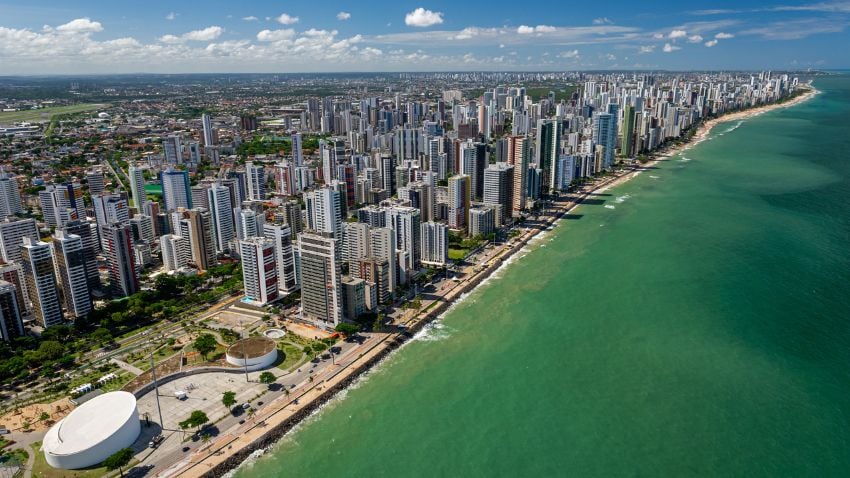
If you want a new life abroad, its interesting to learn a foreign language, try Olly Richards language program
This pathway involves a thorough process of proving one’s Portuguese ancestry. However, citizenship through descent is not required to live in the country for a certain amount of time or stay there once one becomes a Portuguese citizen.
Even if one can prove your Portuguese heritage through genetic tests, having a living parent or grandparent who is a Portuguese citizen allows you to acquire Portuguese nationality. In other words, you do not need your parents and grandparents to be Portuguese citizens to qualify.
With your documentation in order, submit your citizenship application to the appropriate government office. Adhere to the application guidelines and ensure that you pay any necessary fees. Be prepared to respond to any questions and provide additional information if requested during the application review process.
To apply for Portuguese citizenship by descent, one must meet at least one of the following eligibility criteria:
Born in Portugal to a father or mother who is a Portuguese citizen;
Born outside Portugal to a father or mother who is a Portuguese citizen and an employee of the Portuguese State;
Born outside Portugal to a Portuguese father or mother and have been listed in the Portuguese civil registry or formally proclaimed to become a Portuguese citizen;
One may qualify if one was born outside Portugal and can prove their direct lineage to at least one Portuguese descendant as a second-degree straight-line relative. The Portuguese descendant must have retained their Portuguese citizenship. Additionally, one must declare their interest in obtaining Portuguese citizenship and provide evidence of your ties to the Portuguese community;
Being descent of Portuguese Sephardic Jews (link in Portuguese);
Individuals who have rendered services to the Portuguese state or community, such as military service for Portugal (link in Portuguese).
Once you meet one of the ancestry requirements, you must fulfill the following conditions:
Establish a close connection with the Portuguese community. A close connection must be demonstrable through proficiency in the Portuguese language, residence, or consistent visits to the Portuguese territory;
No criminal record for a punishable crime with a maximum prison sentence of three years or more under Portuguese law;
Not linked to or involved in terrorist activities.
By satisfying the above eligibility criteria and conditions, one can apply for Portuguese citizenship by descent.
If you want to secure your new life abroad, you might need to learn a foreign language. Unlock your language learning potential with the language program designed by renowned polyglot Olly Richards.

In cases where the parents were not married at the time of the childs birth, an Acknowledgment of Paternity is required
The documentation required for Portuguese citizenship by descent varies depending on the eligibility conditions for the descent. Below are the necessary application documents based on Portuguese parentage and Portuguese grandparentage.
To apply for Portuguese citizenship as a child of Portuguese parent(s), the following documents are required:
Valid Portuguese passport of your Portuguese parent(s): Include a copy of your parent(s)' valid Portuguese passport(s) to provide evidence of their Portuguese citizenship;
Valid identification card of your Portuguese parent(s): Submit a copy of your parent(s)' valid Portuguese identification card(s) to establish their Portuguese nationality;
Long-form birth certificate: Ensure that your long-form birth certificate contains detailed information about your birth, including the names of your Portuguese parent(s);
Parents' birth registration certificate: Obtain an Apostille-authenticated birth certificate for your non-Portuguese parent from the government of the country where they were born;
Marriage certificate (if applicable): If your parents are married, provide a copy of their marriage certificate to validate their marital relationship.
The purpose of providing birth and marriage certificates is to establish the lineage. If the parents got married outside of Portugal, their marriage must be registered with Portuguese authorities before one can apply for Portuguese citizenship. It is necessary to visit the consulate to register the marriage if it has not been done in Portugal.
In cases where parents were not married at the time of a child's birth, an Acknowledgement of Paternity is required. This signed document must contain the signatures of both parents and establish the legal father's identity. The paternity confirmation should have been completed while the child was underage.

Official certification of proficiency in Standard European Portuguese as a second language
To apply for Portuguese citizenship as a descendant of a Portuguese grandparent, the following documents are necessary:
Birth certificate: Provide a birth certificate with an Apostille authentication, proving your parents' parental claim while you were a minor;
Documentation demonstrating your extensive understanding of the Portuguese language:
For example, valid documents are:
- the CAPLE,
- a certificate of passing an exam in a Portuguese private or public school.
- Certificate issued by a recognized Portuguese educational institution, whether a public or private school.
- Official certification of proficiency in Standard European Portuguese as a second language obtained from an authorized Portuguese Evaluation Centre.
Birth Registration Certificate of your parents and Portuguese grandparents: This document should establish your grandparents' parental claim while your parent was a minor;
Foreign criminal record certificate: It is necessary to obtain a certificate from the country of birth, country of nationality, and all countries where one has resided since the age of 16. If the certificate is not in Portuguese, it is required to include a translated copy for each certificate. Notably, a Portuguese criminal record certificate is not obligatory.
Related content: Obtaining Citizenship Under The Mercosur Agreement
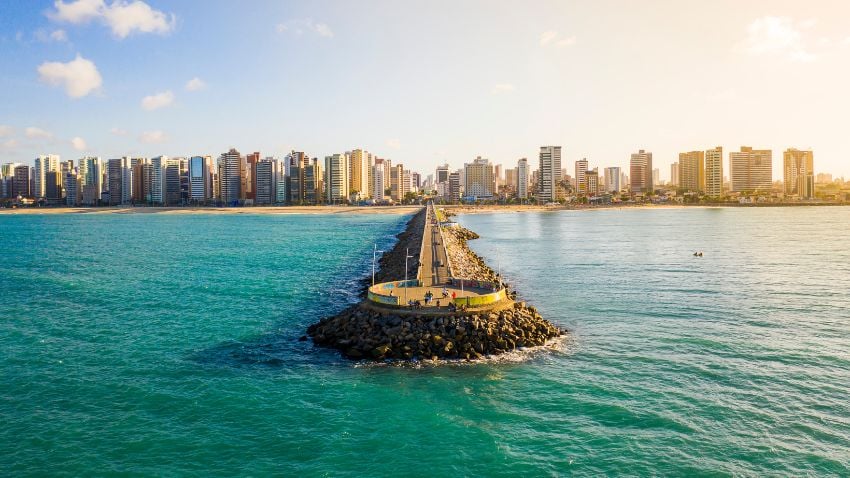
If married to a Portuguese person for more than 5 years, proof of knowledge of the Portuguese language will not be required
If one happens to marry a Portuguese citizen, it is possible to get Portuguese citizenship if certain conditions are met.
Individuals who have been married to a Portuguese citizen for more than three years;
Individuals who are in a de facto union with a Portuguese citizen for more than three years after judicial recognition of the status by a civil court.
As said in the Portuguese government’s official website: “De facto partnership in Portugal is not a marital status. Its recognition, however, has some effects similar to marriage”.
To apply for Portuguese nationality through marriage, follow these steps:
Submit all required documents to the Conservatória dos Registos Centrais;
The nationality declaration must be made while the marriage is valid, even if the marriage is later dissolved.
When applying for Portuguese nationality through marriage, the following documents are required:
Completed application form;
Certified copy of the applicant's Birth Certificate, legalized by Apostille or by the Portuguese Consulate with jurisdiction over the area of birth;
Complete Narrative Birth Certificate of the Portuguese spouse, issued within the last six months, containing the due integration of the marriage;
Copy of spouse's Portuguese passport and Identification card;
Criminal Record Certificate issued by the authorities of the country of birth and countries where the applicant has resided after turning 16 years old, along with the respective translation if not issued in Portuguese. (Portuguese Criminal Clearance is not required but advised for time efficiency);
Clean Criminal Record;
Proof that the applicant was never employed as a foreign Civil Servant nor served in foreign armed forces unless required by local law;
Proof of knowledge of the Portuguese language (handwritten letter explaining the motive for the nationality request).
If married to a Portuguese national for more than five years, proof of knowledge of the Portuguese language is not required.
Related article: The Basics Of How To Get A Second Passport Or A Second Residency
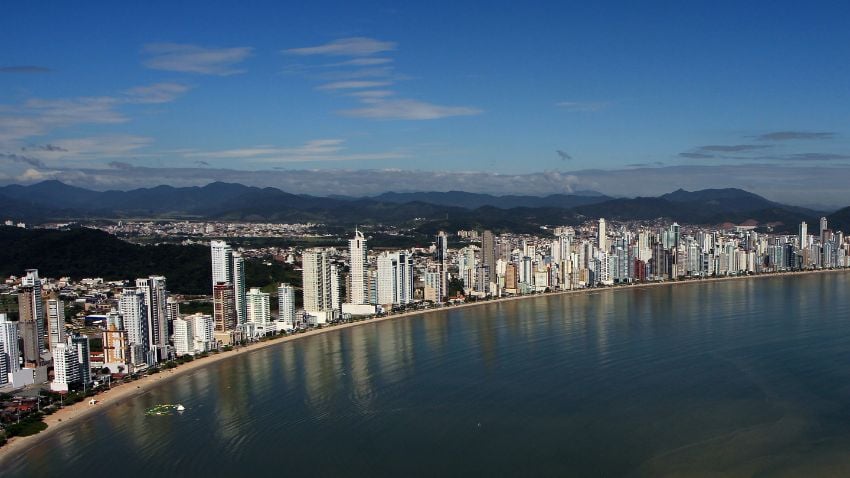
The applicant must establish an adequate connection to the Portuguese community beyond family bonds
To prove knowledge of the Portuguese language, the following documents can be presented:
Diploma issued by a Portuguese public or private school, as per Portuguese law;
Certificate of approval in an exam conducted by any of the institutions mentioned before;
Certificate of approval in an exam issued by the Portuguese Consulate when the applicant was living abroad;
Certificate of proficiency in Portuguese as a foreign language issued by one of the accredited Portuguese evaluation centers;
In the case of someone who has studied in a public or private school in any of the Portuguese-speaking countries, evidence of knowledge of the Portuguese language can be given through a diploma issued by these teaching institutions.
In addition to the above requirements, the applicant must establish an adequate connection to the Portuguese community beyond family bonds. This can be done by providing concrete evidence, witnesses, or other means demonstrating beneficial activities benefiting the community or the Portuguese culture. Examples of evidence include:
Visits to Portugal (photos);
Receipts from hotels, restaurants, medical bills, and airlines.
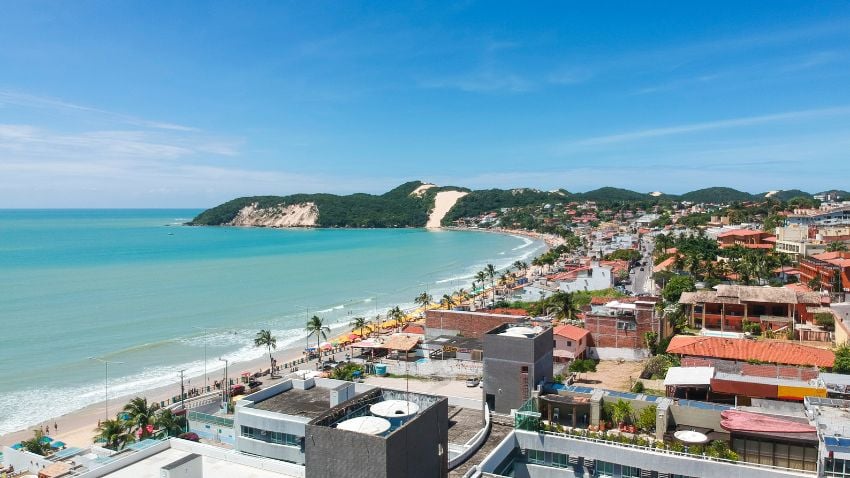
Fulfilling the specific residency requirements, Brazilians can obtain Portuguese citizenship
By fulfilling specific residency requirements, Brazilians can obtain Portuguese citizenship. This process requires a long-term presence in Portugal and proving integration into Portuguese society.
Golden Visa program: as of the time of writing (June 2023), the Golden Visa Program is likely about to end. The government of Antonio Costa has announced that they’ll stop accepting applications at some point in 2023 to fight against speculation in Real Estate prices;
However, the government of Madeira is trying to get privileged legislation to allow the Golden Visa program. Since 1st January 2022, investors cannot purchase property in Lisbon and Oporto, but only in the Azores, Madeira and the interior regions of mainland Portugal.
This popular residency option is also available to other non-EU citizens. For example, one can obtain Portuguese residency by purchasing real estate, creating jobs or contributing to scientific research. From that point onwards, it takes six years to obtain Portuguese citizenship. This Visa program only requires one to spend seven days per year in Portugal.
Working or investing in Portugal: Brazilians can also obtain residency in Portugal through employment or investment. Working for a Portuguese employer or starting a business in Portugal can provide opportunities for residency;
D7 Visa Program: originally designed for retirees earning a pension outside Portugal, now it is also appealing to anyone with passive income from a foreign source such as salary from a remote employer, rental income, dividends, etc.;
D2 Visa Program: a good option for entrepreneurs wishing to establish a business in Portugal.
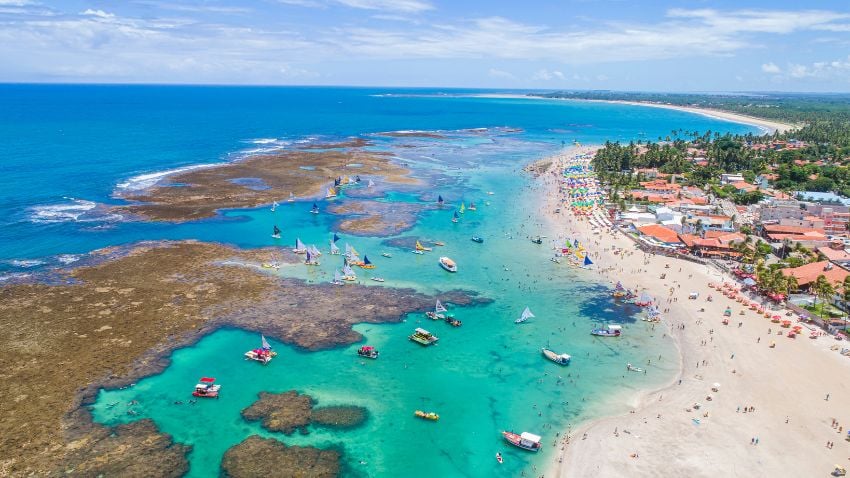
After successful registration, the person will be invited to participate in a Citizenship Ceremony
Acquiring Portuguese citizenship through residency in Portugal is possible by meeting specific criteria. These criteria typically include the following:
Residency Period: A specific period of legal residence in Portugal, often five years or more, is required;
Clean Criminal Record: Applicants must have a clean criminal record, indicating no criminal convictions that would hinder the acquisition of citizenship;
Tax Compliance: There should be no outstanding tax obligations in Portugal, demonstrating financial responsibility;
Language Proficiency: Proof of Portuguese language proficiency at a certain level, such as A2 level, is typically required. This ensures applicants have a basic understanding of the language;
Community Integration: Evidence of integration into the local community, such as participation in community activities, social integration, and cultural involvement, may be required.
After fulfilling these requisites, this is what one must do:
Submitting the Application: After completing the required residency period and fulfilling all the necessary criteria, one is eligible to submit their citizenship application to the relevant authorities. The application package should include all the requested supporting documents and forms the Portuguese government outlines.
Review and Decision: The authorities will carefully examine one’s application and the accompanying documents to evaluate one’s qualification for citizenship. This evaluation process may entail interviews, additional document requests, or language proficiency assessments, depending on the application's specific requirements.
Citizenship Ceremony: Upon successful approval of one’s application, one will be invited to participate in a citizenship ceremony. During this ceremony, one will be asked to take an oath of allegiance to Portugal, symbolizing one’s commitment to the country. Following the ceremony, one will be granted a Portuguese citizenship certificate, officially recognizing one as a Portuguese citizen.

To navigate these paths successfully, it is valuable to seek the expertise of an expatriate advisor, contact the Expat Money team
In conclusion, obtaining Portuguese citizenship offers Brazilians numerous benefits, including freedom of movement within the European Union, improved employment prospects, visa-free travel to many countries, access to social benefits and healthcare, and affordable education. Brazilians can pursue Portuguese citizenship through three main pathways: descent from Portuguese ancestors, marriage to a Portuguese citizen, or residency-based options.
For citizenship by descent, proving Portuguese ancestry is crucial, while being married to a Portuguese citizen provides a simplified route. Residency-based options require fulfilling specific requirements such as language proficiency and integration into Portuguese society.
To navigate these pathways successfully, it is valuable to seek the expertise of an expat consultant. They can guide individuals through the process, ensure compliance with eligibility criteria, and assist with gathering the necessary documentation.
By understanding the key steps and pathways to Portuguese citizenship and leveraging the expertise of an expat consultant, Brazilians can embark on their journey with clarity and confidence, opening doors to an improved quality of life and a wealth of opportunities in Europe.
If you want the best intel from the expat world, including profitable offshore opportunities, little-known tax-saving strategies, and hard-won insights on immigration, passports, and Plan-B residencies, all delivered to your inbox every single week, then join our daily correspondence, EMS Pulse®. Currently enjoyed by over 84,000 expats and expat-hopefuls worldwide. Fill in the form below to join our newsletter free:

Written by Mikkel Thorup
Mikkel Thorup is the world’s most sought-after expat consultant. He focuses on helping high-net-worth private clients to legally mitigate tax liabilities, obtain a second residency and citizenship, and assemble a portfolio of foreign investments including international real estate, timber plantations, agricultural land and other hard-money tangible assets. Mikkel is the Founder and CEO at Expat Money®, a private consulting firm started in 2017. He hosts the popular weekly podcast, the Expat Money Show, and wrote the definitive #1-Best Selling book Expat Secrets - How To Pay Zero Taxes, Live Overseas And Make Giant Piles Of Money, and his second book: Expats Guide On Moving To Mexico.

Mexico remains one of Latin America’s most compelling destinations, especially for North Americans. More than a million expats call it home, and tens...

South Korea is far more than K-pop and K-dramas. It is a country known for outstanding food, from bustling street markets to high-end dining, as well...

Asia is one of the most fascinating regions in the world for travel, offering an extraordinary mix of cultures, histories, and landscapes. From...